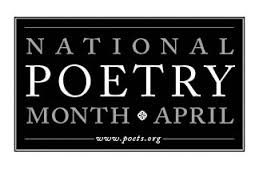
Today, following yesterday’s post about research, I was reading the National Endowment for the Humanities bi-monthly magazine, Humanities. In it is an article about NEH-funded research on political theorist Hannah Arendt. And it underlines the importance of the critical thinking explicit in good research.
I admire & respect most serious Holocaust scholarship, but Arendt is in a class of her own. Her work Eichmann in Jerusalem garnered both critical acclaim and death threats. The reason? Arendt’s contention that Eichmann wasn’t a ‘monster’ (although certainly he was instrumental in horrific, monstrous acts), but rather a ‘thoughtless’ clown.
Considering the man orchestrated the deaths of millions, this assertion didn’t (and doesn’t) sit well with many.

But if you read Arendt’s conclusion about Eichmann, and his ‘thoughtlessness,’ what you have is a damning indictment of much ersatz education and learning. Because what Arendt argues is this: “The longer one listened to him, the more obvious it became that his inability to speak [in anything but clichés] was closely connected with an inability to think [emphasis the author’s], namely, to think from the standpoint of somebody else.” (Humanities Mar/April 2014)
Wow. What a profound damning of the kind of education that produces only obedience without critical contextualisation. In the article, the distinction is made between knowing what you’re doing, and seeing the large picture, a pivotal difference. Eichmann, Arendt realizes, knows he’s good at the transportation that results in the millions of deaths in concentration camps. But while he acknowledges his prowess at this ‘job,’ he appears never to question the impact of this efficacy: how it makes possible the relocation of millions of death camp internees, and their subsequent murder. He is proud of his prowess, while at the same time blind to its deadly consequences.

In today’s hindsight, we can’t imagine such blindness. Until we look at terms like ‘collateral damage,’ and the deaths of thousands of innocent civilians as recently as Afghanistan and Iraq. Too few Americans question such losses, assuming the death of non-combatants (not women, children, a bridal party) is an acceptable price to pay… For what? Oil? Most Americans — like most Germans — have only the vaguest, ‘patriotic’ ideas of why recent wars have been fought.
Yesterday, Oklahoma passed another income tax cut. What, you’re wondering, does this have to do w/ Hannah Arendt, totalitarianism, and critical thinking?

Only the day before, 25,000 Oklahoma teachers actively protested — with their bodies, their signs, their voices, their children & students accompanying — the gutting of Oklahoma’s education system to support further tax cuts. School enrollment has increased by 40,000 since 2008; school funding has been cut by almost 23%, the largest cuts in the nation.
Add to this the impact of standardised testing (some estimates of lost true teaching time — not time spent teaching the test, but actual material — are as high or higher than 20% of classroom time), and students today often lack familiarity with critical thinking strategies.

Teachers at the university level call this generation ‘the NCLB generation,’ meaning that the onset of No Child Left Behind (and now other standardised tests, as well) has framed learning as a ‘fill in the blanks’ activity for far too many young Americans. No wonder we lag behind in so many areas where we used to excel.
But my point is far more general than the plight of Oklahoma’s overcrowded classrooms, and the Sisyphean task of teaching to the test. Without ongoing instruction in critical thinking, we raise robots, folks. Without teachers who stretch the minds of our students beyond ‘fill-in-the-bubble,’ we are doomed as a true democracy. What if Eichmann had a teacher — even one! — who required him to think outside obedience? Outside ‘doing a good job.’ What if someone, somewhere, had required him to really THINK?
What if mindfulness — beginner’s heart, with its attention to our thoughts and their impact — was part of learning? Who knows how things might have been different…?

